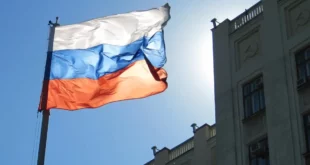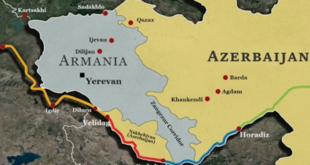 Georgians have begun voting in snap presidential elections seen as a test of the democratic credentials of Mikhail Saakashvili, the country’s pro-western president. Saakashvili is predicted to win the vote on Saturday although polls differ on whether his victory will be big enough to avoid a second round.
Georgians have begun voting in snap presidential elections seen as a test of the democratic credentials of Mikhail Saakashvili, the country’s pro-western president. Saakashvili is predicted to win the vote on Saturday although polls differ on whether his victory will be big enough to avoid a second round.
Â
The president called the election early in an effort to repair his reputation after he was widely criticised for ordering police and security forces to violently crack down on peaceful opposition protests in November.
Â
Days after police fired tear gas and rubber bullets at protesters, Saakashvili closed the main opposition broadcaster and imposed a week-long state of emergency.
Â
Western observation teams are in Georgia to ensure the vote is conducted fairly, but the opposition has already accused the government of widespread vote-rigging and has promised further protests.
Â
‘Pre-determined’ result
Â
Candidates said that the outcome had already been determined through a series of violations, including media bias and the use of state resources to support Saakashvili’s bid.
Â
Levan Gachechiladze, the leading opposition candidate, met European election observers on Friday.
Â
Following the discussions he said: “If these kinds of things continue, and I am 100 per cent sure that this is continuing, then we can’t recognise [the election].”
Â
The authorities have insisted that the election will be conducted fairly and have called on the opposition to recognise the results.
Â
Gachechiladze said Saakashvili was planning to use “non-legal and bad exit polls” to claim victory and promised to “continue protests and everything under the constitution” to oppose him.
Â
However, David Bakradze, Saakashvili’s campaign manager, said that the government’s unprecedented co-operation with international observers guaranteed that the election would be free and fair.
Â
“These are the first elections [in Georgia] conducted in a real competitive situation,” he said.
Â
Two other opposition candidates have also threatened not to recognise the vote.
Â
David Gamkrelidze, of the conservative New Rights party, said that Saakashvili did not have enough support to overcome the 50 per cent threshold required to avoid a run-off vote in two weeks’ time.
Â
Objective result
Â
“If he decided to manipulate the results and win in the first round, I think it will be quite difficult to accept and recognise the results, he said.
Â
“We think the only objective result will be a second round.”
Â
Gamkrelidze said he would support “all peaceful methods” to protest against the result.
Â
Saakashvili’s campaign manager said the opposition was mounting “a campaign to discredit the election and to create the perception” that it was unfair.
Â
“If Saakashvili wins, they’ll say it was not free and fair, it was rigged and that’s why we lost,” he said.
Â
Bakradze said the opposition would have no choice but to accept the vote if foreign observers said it met international standards, adding that he doubted that many people would then take part in demonstrations.
Â
“I don’t think there will be a lot of people,” he said.
Â
“There will be their activists, but then it will be seen by most of the population as something very irresponsible by the opposition. In that case, we don’t expect any complications.”
Saakashvili held a final election rally on Friday night that drew 15,000 cheering supporters to a Tbilisi sports arena.
Â
“Our task is to fight poverty,” he told supporters. “And as your candidate, if elected, I will fulfil this task.”
Â
After a landslide election win four years ago after the so-called Rose revolution, Saakashvili introduced economic reforms, aimed for Nato membership and positioned Georgia as the main US ally in a region where Russia is competing for influence.
Â
Polling stations opened across Georgia, a country with a population of about 4.5 million, at 8am (0400 GMT) and will close 12 hours later.
Source: Agencies
 Eurasia Press & News
Eurasia Press & News



